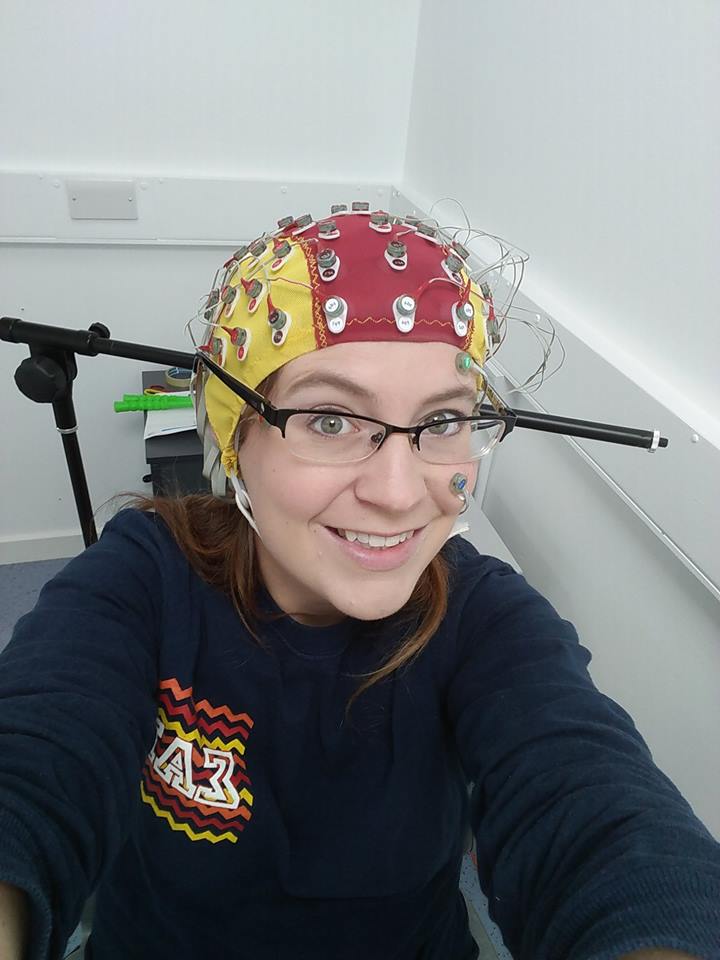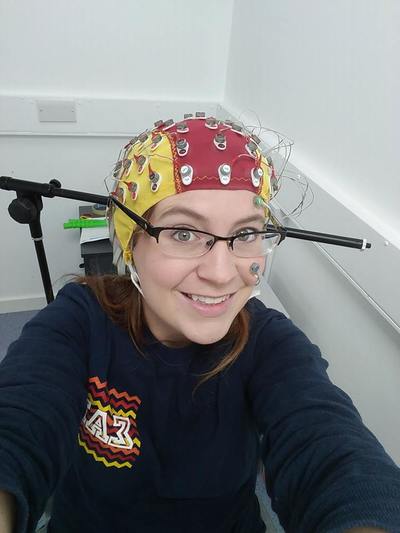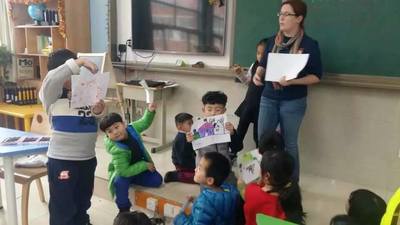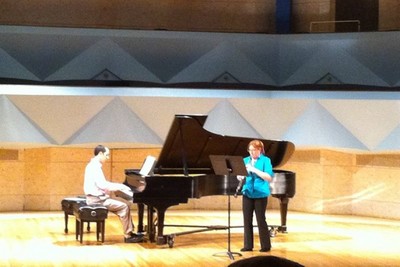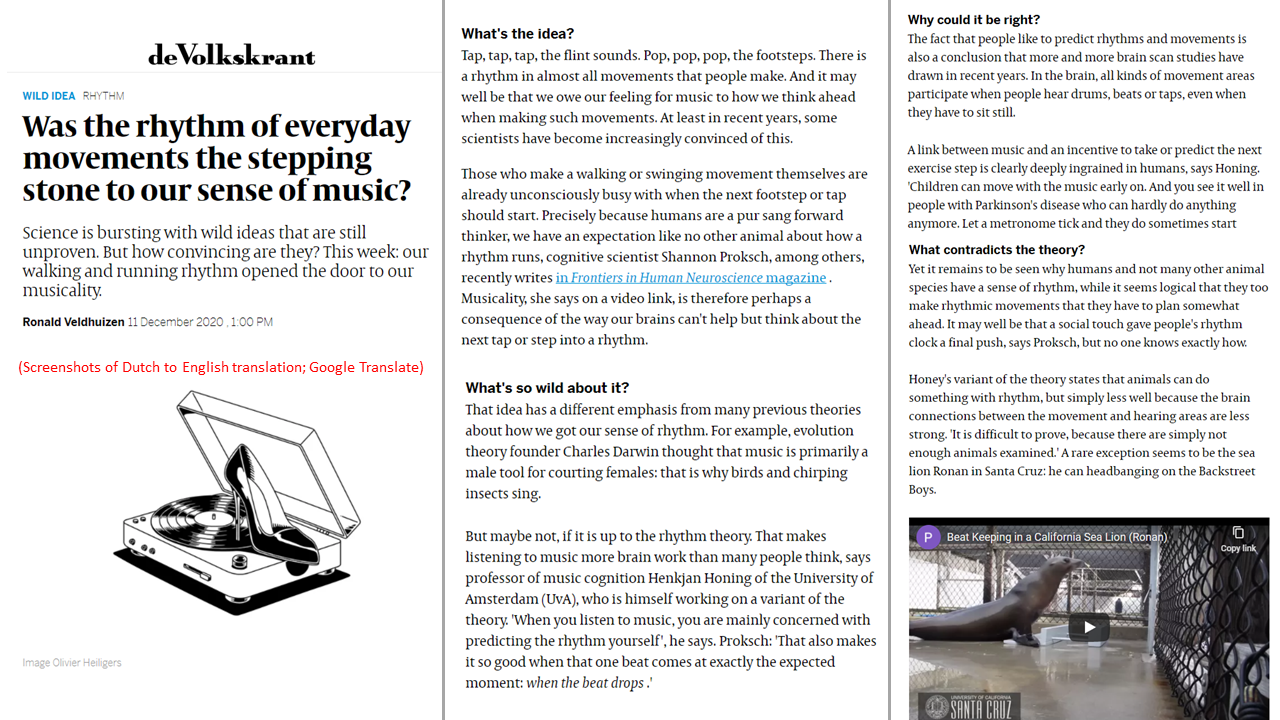Bio
My name is Shannon Proksch, and I am an Assistant Professor of Psychology with a focus on Cognitive Neuroscience at Augustana University in Sioux Falls, South Dakota. My teaching includes courses in General Psychology, Cognitive Psychology, Behavioral Neuroscience, Sensation & Perception, and the Psychology and Neuroscience of Music. My general research interests are examining the neural dynamics of music cognition -- from lower level-beat processing to higher-level coordination and social interaction.
I completed my PhD Cognitive & Information Sciences at the University of California, Merced, working in the Sensorimotor Neuroscience lab with advisor Ramesh Balasubramaniam. During this time, I received funding from a National Science Foundation Research Traineeship, and authored several papers on music cognition/neuroscience and social neuroscience.
In addition to my cognitive neuroscience work, I also sometimes put on my musician hat. I have classical training on the oboe and English horn, and have performed in musical theater orchestras on flute, clarinet, & saxophone. My interdisciplinary background spans music theory, philosophy, language and cognition. I graduated in 2015 from Texas A&M University-Corpus Christi with a B.A. in Music and a certificate in Teaching English to Speakers of Other Languages (TESOL). I've made use of my experience and training by teaching content-based English classes in music and primary education in Weifang, China before going on to receive an MSc in Philosophy of Mind, Language, and Embodied Cognition with the University of Edinburgh, Scotland in 2017 (teaching English online along the way!).
When not in the lab or teaching, I enjoy making music, shooting archery with my partner, Byron Pillow, and hanging out with my dog, Thor.
Psychology at Augustana University
Cognitive Science @ UC Merced
Sensorimotor Neuroscience Lab @ UC Merced
NRT Intelligent Adaptive Systems
This video started out in the style of the 3 Minute Thesis (also called GradSlam at the University of California). But I study music, so I had to add a musical example. The resulting video is a 4 minute intro to the motion capture and brain stimulation research I do in the Sensorimotor Neuroscience Lab at UC Merced.
Ronald Veldhuizen interviewed Shannon and Dr Henkjan Honing (Univ of Amsterdam) for de Volkskrant's Wild Idea column. We chatted about how your motor system and your brain's capacity for prediction might have enabled rhythmic aspects of musicality to evolve. Above are screenshots from Google translate. Read the article (in Dutch - but you can use Google translate!)
